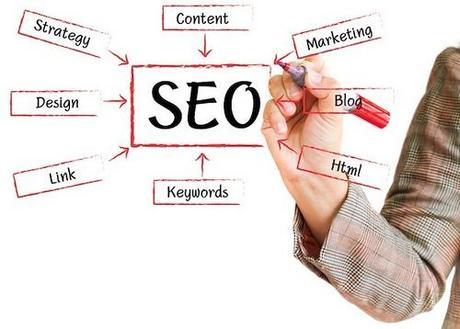 It took less than a minute for Matt Cutts to casually declare that Google has tested the effects of dropping linkage data from their search results algorithm before everyone went crazy. The resulting debate though has lasted a lot longer, as a combination of speculation, panic and sometimes scorn has swirled amongst SEO circles around the subject of Google’s intentions towards linking for SEO. Although Cutts did say that the results were low quality and that, “backlink relevance still really helps,” it’s the addition of the words “at least for now” to that declaration that has definitely captured the attention of the SEO world.
It took less than a minute for Matt Cutts to casually declare that Google has tested the effects of dropping linkage data from their search results algorithm before everyone went crazy. The resulting debate though has lasted a lot longer, as a combination of speculation, panic and sometimes scorn has swirled amongst SEO circles around the subject of Google’s intentions towards linking for SEO. Although Cutts did say that the results were low quality and that, “backlink relevance still really helps,” it’s the addition of the words “at least for now” to that declaration that has definitely captured the attention of the SEO world.
The Value of Links in Google’s Algorithms? Two Schools of Thought
This hot topic was the subject of a recent Whiteboard Friday over at Moz, where Rand Fishkin took a look at the value of links in Google’s algorithms and offered some advice to help marketers navigate their way through these uncertain SEO times. Rand highlighted a recent post over at WordStream, where a number of experts had been asked to contribute to a thought experiment around what any changes might mean; in his presentation he summarizes the two schools of thought on the future of linking.
First, some take the view that, as Google filters out the impact that some links have then the value of those remaining links will likely have greater value. On the other hand, there are those who say that as more elements are introduced into the search rankings system and maybe given greater prominence, linking will become a smaller part of the equation and will therefore be of diminishing influence. This is happening already to a degree, as social is becoming a more common form of sharing and interacting and before talk of G+ going down the tubes started circulating, was having an impact on search results and the way we react to them. Social signals matter to search engines and what people are finding out is that those are difficult to fake. (Stands up, executes backflip).
Secondly, many (smart) webmasters are showing a reluctance to link to sites that could one day turn “bad,” combined with the proliferation of “no-follow” links and you can see that there many factors driving change, whatever Google may be considering. Rand’s take is that links will remain an important part of the system for much of the next decade, although assuming a diminishing influence as we move forward. Read that: quit panicking, but start thinking differently about what you know or think you know about linking.
How to Adapt Your Linking Strategies Moving Forward
The Moz presentation suggests a three-pronged approach for effective SEO in the future:
- Invest in marketing tactics and channels that provide value in multiple ways such as content marketing. Good quality, relevant content is key. The emphasis here is on “relevant” content that your customers and prospects want and need, and which can help them make better decisions, run their businesses more effectively and solve their problems. This is not spammy marketing content, so if that’s what you’re thinking, start over. Relevant content that serves your audience can bring you social shares, brand recognition and can also be effective at gaining inbound links. This takes patience and time, and if you’re looking for the “set it and forget it button” when it comes to content marketing, prepare to be disappointed.
- Refocus the energy your SEO team has been expending on building all kinds of links onto getting the high quality links that really matter. There’s also never been a better time to focus on earned media and to quit eschewing the value of great PR as part of your integrated marketing strategies. This really shouldn’t be something that’s new to anyone paying attention, so if your SEO firm is still talking about getting you links, be sure you’re paying attention and asking lots of questions – this could be an indicator that you need a new SEO team.
- Don’t proactively seek any and every kind of link, especially of the non-editorial type. This is a given, based on all the changes that have taken place over the last couple of years, but it’s important and bears repeating.
It looks like we are all going to face a much greater challenge in future to earn editorial links, but the value of them will be greater when we do. That looks like a win-win for the people who are doing it properly.
You can find Rand’s full presentation below. For more background I would recommend that you also take a look at The Future of PageRank: 13 Experts on the Dwindling Value of the Link. Be sure to take a look at the comments there and on the Moz presentation to find some great insights on the subject.
Do you still see links as being an important part of your SEO strategy and, if so, are you making any changes to reflect the new landscape we are all operating in? I would love to hear your thoughts.
photo credit: Search Influence via photopin cc
Linking for SEO: Has Linking Lost Its Value? is a post from: V3 Kansas City Integrated Marketing and Social Media Agency

